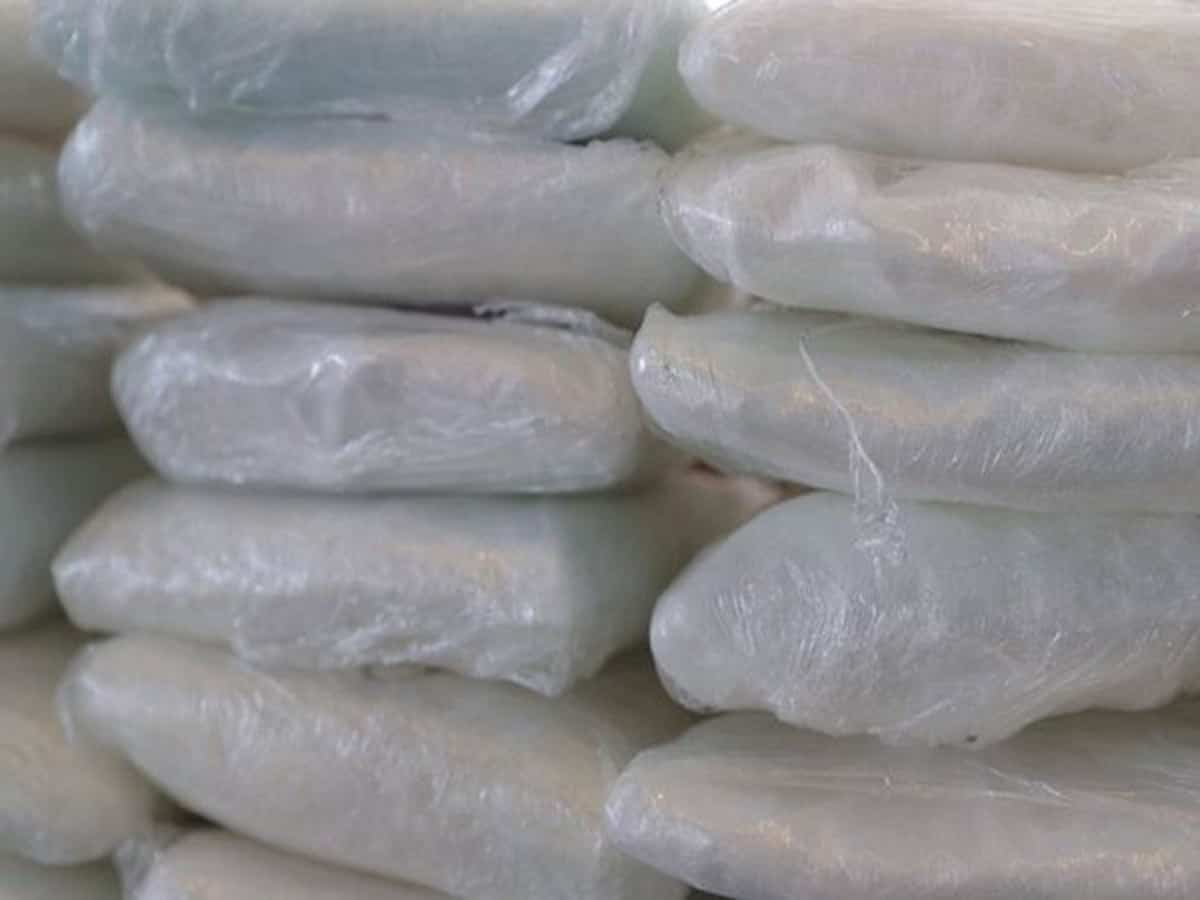
Islamabad [Pakistan], September 1 (ANI): In order to target youths and channelling finance for Pakistan-backed terror activities, Islamabad is using narco-terrorism as a new weapon in its proxy war against India in the Kashmir valley.
Ayjaz Wani, writing in Observer Research Foundation (ORF) reported that Kashmir has witnessed an alarming rise in narco-terrorism and the apathy shown by religious leaders has only added to the problem due to their silence over the issue.
Kashmir Valley has seen a 2,000 per cent rise in heroin abuse in the last five years. Pakistan has now resorted to infiltrating large amounts of narcotics in Kashmir with the help of drones. Jammu and Kashmir police chief Dilbag Singh dubbed the narco-terrorism from Pakistan as “the biggest challenge”.
For the last 30 years, Pakistan has succeeded in breaking down the traditional methods of informal control system by introducing contesting religious ideologies such as Jamat-i-Islami, Salafism, and Tableeg. These contesting ideologies have silenced the sane voices within society, making traditional social mores and identities irrelevant.
Subsequently, people’s affiliation with these ideologies has divided society at the community level, fuelling increased deviant behaviour among the youth. This unchecked deviant behaviour has been primarily responsible for the widespread rise in radicalism, extremism, and now drug abuse, said Wani.
Rather than seriously discussing drug abuse and the role of Pakistan during such religious gatherings, the mullahs and religious leaders have stuck to their own teachings rather than the Quranic teachings and prophetic sayings against drug abuse.
The mullahs affiliated with these contesting ideologies deliver sermons on Fridays and festive days in mosques. While they remain deeply invoked to their doctrines and their discourses are taken very seriously, they have never spoken against drug abuse within the society.
Rather than seriously discussing drug abuse and the role of Pakistan during such religious gatherings, the mullahs and religious leaders have stuck to their own teachings rather than the Quranic teachings and prophetic sayings against drug abuse. They have preferred to remain hand in glove with separatists and a party to this unending conflict, reported ORF.
Furthermore, repeated calls for strikes by separatists and militants, long-term curfews imposed by the security agencies, and the unending conflict have increased anxiety, depression, boredom, and psychological stress.
In addition to this, the near-total lack of recreational activities has lured the impressionable young minds of Jammu and Kashmir to the perils of drug addiction, said Wani.
The Valley has witnessed an alarming rise in drug addiction in all socioeconomic classes of the region. Every hour, a new drug addict unfailingly enters the drug de-addiction centre in Kashmir.
Srinagar’s Government Medical College’s Oral Substitution Therapy Centre reported only 489 cases in 2016, but breached the 10,000 mark in 2021. This alarming 2,000 per cent spike in the last five years has sent shockwaves across the security apparatus and the government of Jammu and Kashmir.
Of late, Pakistan has used a dual strategy of sending drugs as well as weapons to keep the conflict alive and tear the core of the valley’s social fabric. Heroin smuggled from Pakistan is the most widely used opioid all over Kashmir. The cross-border smuggling of narcotics provides oxygen to terrorism via finances and, if not curbed soon, could ruin the lives of the region’s youth.
The finances generated from drugs such as heroin fund separatists’ activities and spread other centrifugal tendencies. Increasingly, terror modules that have been busted in the recent past by security agencies show a more significant challenge to society and security, reported ORF.
In June last year, a narco-terror module busted in the Baramulla district resulted in the arrests of ten people possessing heroin worth Rs 45 crores along with Chinese grenades and four pistols. This terror module was operating in the whole of Jammu and Kashmir as well as outside the Union Territory.
However, the strengthened security grid and increased coordination among various security agencies have effectively lowered the scale of terrorism activities. (ANI)
